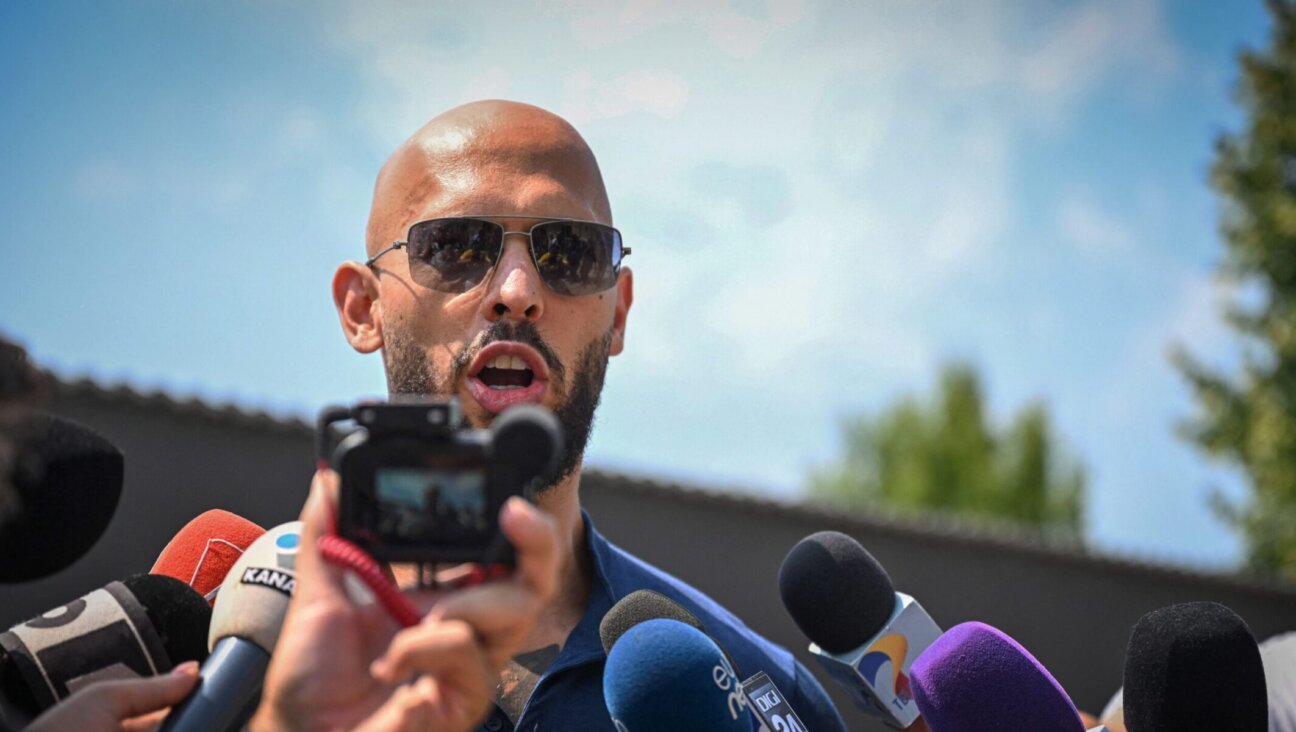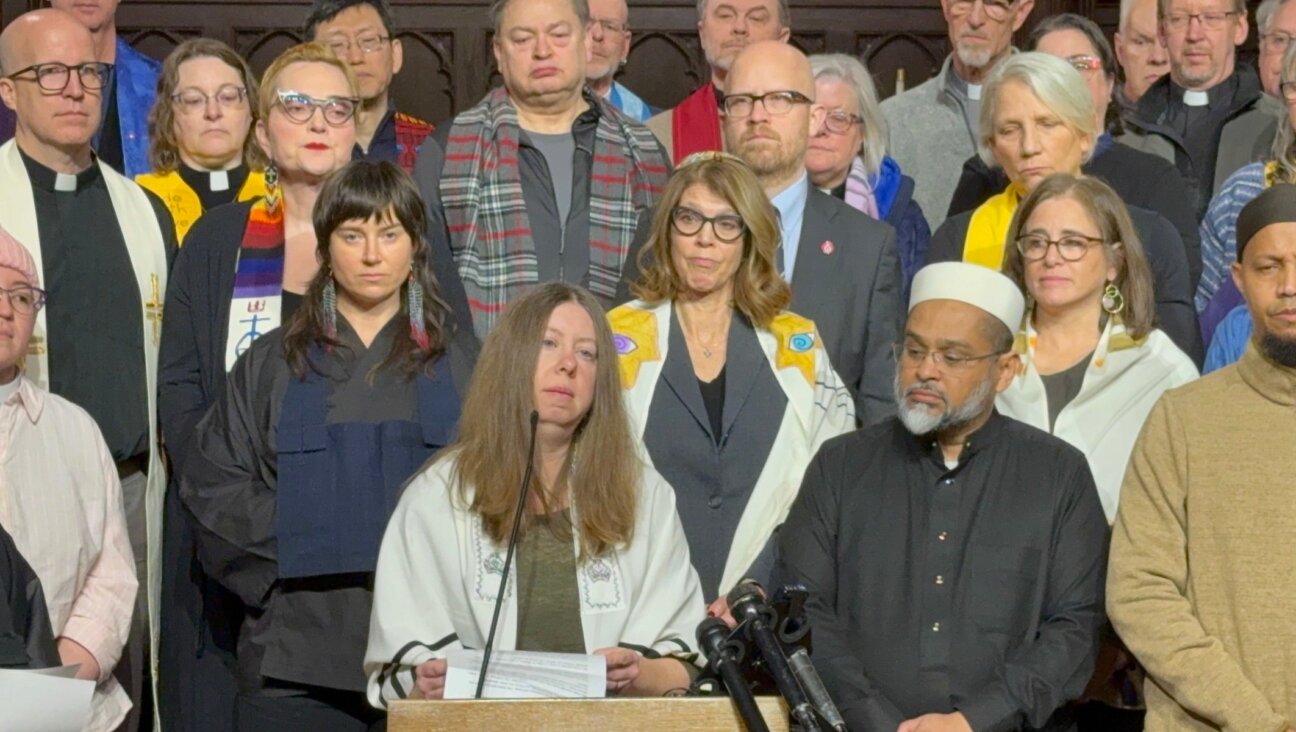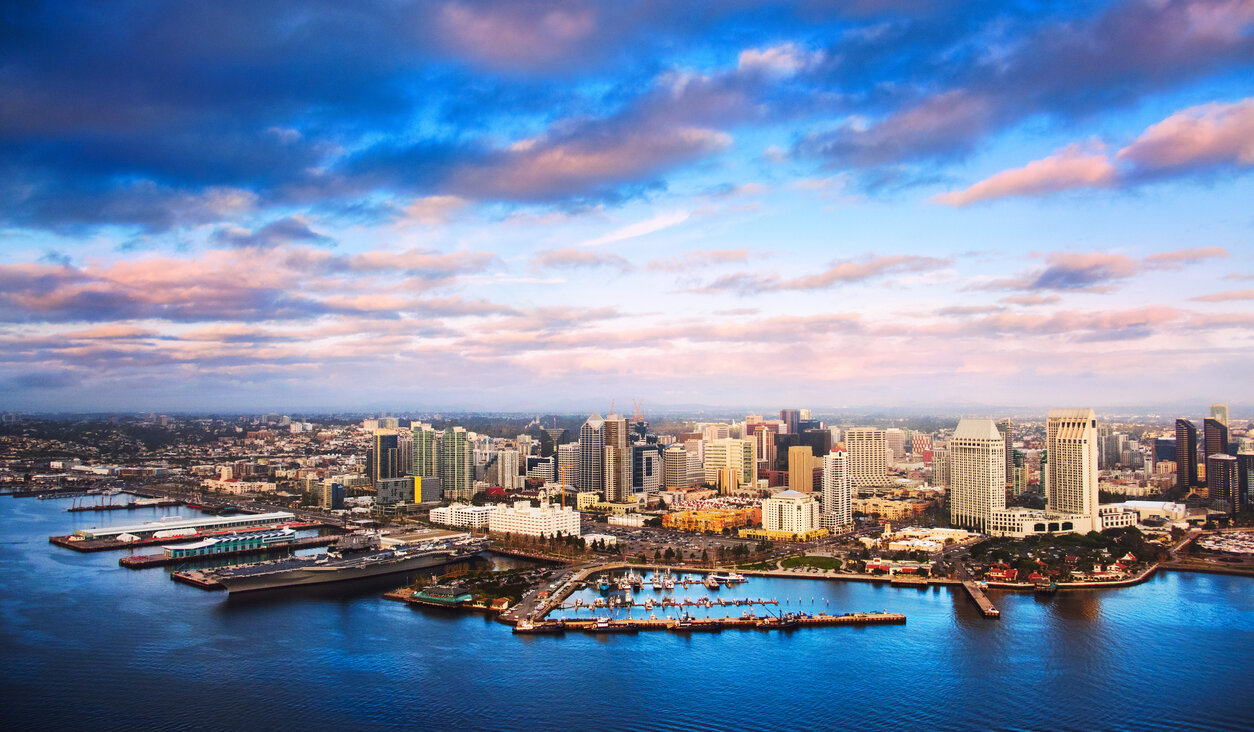A Holocaust survivor’s lesson in exhaling and fighting on

Asya Seredenko in her garden with one of JDC’s staff members. Image by Courtesy of JDC
Asya Seredenko was six years old when the Nazis came to her city — Kharkov, Ukraine. That’s when she started holding her breath.
Her Jewish father was off on the front lines for the Soviets, and the Germans patrolling the streets knew Asya’s home belonged to a Jewish soldier. Asya’s Russian-born mother hid her in a large hope chest, instructing her to stay still and silent to keep safe.
One day, a Nazi looking for Jews came to their home, resting his hand on the very wood Asya lay underneath. As he interrogated her mother, she realized Asya was no longer safe there, and soon after, the young girl — still scared, still holding her breath — was spirited away to her godmother’s house four streets over.
Asya rode out the war in hiding: in her godmother’s kitchen, jumping out the window into the barn with the cows if soldiers came near; disguised as a neighbor’s niece; sequestered in the cellar. Sometimes at night, if the coast was clear, she could go on short walks outside.
As a public service during this pandemic, the Forward is providing free, unlimited access to all coronavirus articles. If you’d like to support our independent Jewish journalism, click here.
Today, on Yom HaShoah, Asya is 84 — one of tens of thousands of Holocaust survivors across the former Soviet Union given homecare, food, medicine, and more by my organization, JDC, and our steadfast partner, the Claims Conference. This life-saving aid, also provided to thousands of other poor Jewish elderly, is made possible as well by the Jewish Federations of North America, International Fellowship of Christians and Jews, and many others.
I met Asya — elegant and ethereal, with an immaculate silver bob and a smart beaded necklace — about a year ago, interviewing her about her wartime experiences and that aid. Although she was out of hiding before she was 10, she came to realize she kept holding her breath for years.
“The fear of jumping, that need to be quiet, the command not to object … the way I was made to behave really did a number on me,” she told me. “It was years before I felt normal and felt like I could stand up for myself and what I knew to be right.”

Asya Seredenko Image by Courtesy of JDC
That childhood of fear and hiding led Asya to seek out a life oriented around fighting for the vulnerable and giving voice to those on the margins. She spent more than three decades teaching biology and chemistry at a school for the deaf, empowering a population stigmatized in Soviet society.
Now, living on a tiny fixed income, Asya relies on the Jewish community for her food and medicines, utilities, home care and related hygiene products, needed more than ever as the coronavirus pandemic spreads in Ukraine. She doesn’t take the twists and turns of her life for granted.
“I must have had a good guardian angel to survive it all, one who taught me patience, endurance, and consistency,” she said. “As a child, once the war began, I could have died at any moment … because I’m Jewish. And now, because I’m Jewish, I live.”
Asya’s story of hiding and hoping is especially resonant this Yom HaShoah, as billions around the world self-isolate at home. We are all holding our breath, forgoing the rituals and routines of public life in an effort to keep ourselves and others safe.
Many are doing far more than that. I’m moved to tears each time I see photos of our homecare workers in the former Soviet Union donning masks and gloves and biking all over their cities to deliver critically-needed humanitarian aid to the most vulnerable — Holocaust survivors like Asya who once again can’t leave their homes.
Back then, Asya had her mother, who shepherded her to safety at her godmother’s house, like Moses’ mother Yocheved who placed him in a basket and floated him down the Nile. Today, she has all of us — a global Jewish community committed to protecting her well being and giving her a dignified life.
“I don’t know how I’d live without the help I receive. Thanks to the Jewish community, I don’t need to think about how I’m going to eat tomorrow,” she told me. “I don’t know whether he sees it or not, or whether he knows how I live, but when I visit my father’s grave, I tell him: ‘Thank you that you were in my life, that I live thanks to the Jewish people.’”
We can’t yet know how our world will be changed by the coronavirus pandemic and this extended social distancing, forcing each of us to hold our breath a little longer.
But I’m more curious about what happens when we exhale.
Like many of us, I hope that what emerges is a kinder, more compassionate world, one that centers at-risk populations and makes sure they are cared for.

Asya Seredenko with the author Image by Courtesy of JDC
Hiding in that chest as a young girl, Asya couldn’t have known the impact all that holding her breath would have on the woman she’d become. Still, like so many Holocaust survivors, she took a painful, traumatic childhood and used it as fuel for a life spent championing the neediest in her community, lifting them up, and giving them the tools they needed for a better future.
Let’s follow her example and use our collective breath-holding — this essential, unfamiliar, ever-evolving experience — to power forward our fight to care for those who need us most.
Alex Weisler is a video producer and digital storyteller at JDC, the global Jewish humanitarian organization.

















